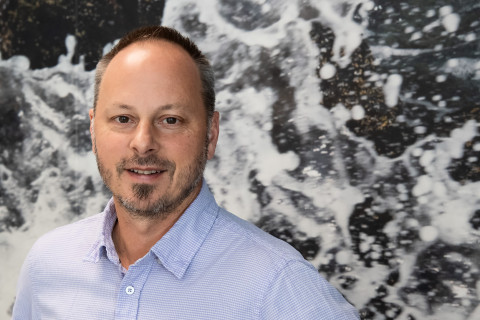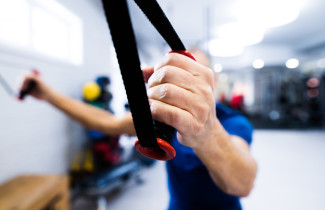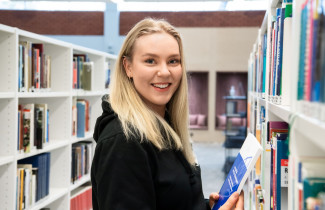A student exchange in Kuopio changed the course of Noël Barengo’s career. What was meant to be a temporary visit turned into three university degrees and a passion for public health.
Noël had studied medicine for three years at the University of Zürich in his native Switzerland when he felt in need of a change.
“The Swiss medical school was rather conservative, theoretical and competitive, with large admissions and some of the students dropping out each year. I decided to contact Finnish universities about exchange opportunities.”
Thanks to his Finnish mother, Noël spoke the language and could take up studies in Finnish. Indeed, he got a reply from the University of Eastern Finland welcoming him to study medicine in Kuopio. “I was intended to stay for only a year, but I liked it so much that I applied and was given a degree student position. I’m really grateful for the opportunity because it changed the course of my life.”
“In Kuopio, medical students get a lot of hands-on teaching and early practice in health care centres. In addition, it was a nice place to stay, with beautiful nature and easy access to sports activities.”
During his medical studies in Kuopio in the late 1990s, Noël was active in the International Federation of Medical Student’s Associations (IFMSA). “That’s how I got acquainted with the WHO’s public health projects and became interested in the field.”
Soon after finishing his medical degree, he enrolled in the Master’s Degree Programme in Public Health (MPH) and moved on to do a PhD in public health. In his doctoral thesis, he studied the associations of physical activity with cardiovascular risk factors and mortality. The study was based on the pioneering North Karelia Project, which provided a successful model for the prevention of noncommunicable diseases, such as cardiovascular diseases and type 2 diabetes.
“The model was later adapted to smaller projects I was involved in, and it raised a lot of interest especially in South America. It has been a good export product from Finland,” Noël says.
Biostatistics with Santa’s helpers
Before his PhD, Noël put his medical skills to use in clinical work, but also took up teaching in the MPH programme in Kuopio. While working in different parts of the world, he has kept up teaching some courses in the programme remotely. His “Biostatistics 2” course is especially popular, possibly because of the Santa Claus themed course material. Noël has created a whole dataset on Santa’s helpers’ lifestyles and risk factors, which the students get to analyse. “I knew from my own experience that statistics can be boring and hard to understand, so I have tried to make it a bit more fun.”
“It has been nice to maintain this contact and to see how the MPH programme grows and develops. The students also keep getting better year by year.”
Noël has pursued a truly international career in the field of public health. His first projects were aimed at preventing HIV and maternal mortality in Nigeria. Later, he has been involved especially in type 2 diabetes screening and prevention projects, and taught epidemiology, research methods and public health at several universities in Europe and Latin America. He has worked as an independent consultant in non-communicable diseases for the Pan-American Health Organization, the Ministries of Health of Argentina, Colombia and Paraguay, and the ASPIRE centre in Qatar. Now he is an associate professor at Florida International University’s Herbert Wertheim College of Medicine.
“The prevalence of diabetes is still rising globally, and so is the obesity epidemic. COVID-19 is an additional risk factor to many people with chronic diseases, and the pandemic has further promoted a sedentary lifestyle. These are some of the public health challenges we are now facing,” Noël says.
However, 20 years in the field have made him optimistic. “Thanks to research, we know how to prevent non-communicable diseases. It’s a matter of putting the knowledge to use in health care and policies.”
“For example, South American countries have gradually started screening for type 2 diabetes risk, which makes it possible to invite people at risk to dietary and exercise intervention programmes.”
“Many countries have also succeeded to decrease cigarette smoking by tightening their tobacco legislation, and Finland has been one of the pioneers.”
In February, Noël Barengo visited Kuopio and taught UEF students in person for the first time in ten years. He arrived on the same plane with some Olympic athletes fresh from the Beijing Winter Olympics, including the cross-country skiing gold medallist Iivo Niskanen. “At the airport, there was a big crowd waiting with a welcome committee led by the City Mayor. It was such a nice welcome, even though they were not there for my sake,” Noël chuckles.



